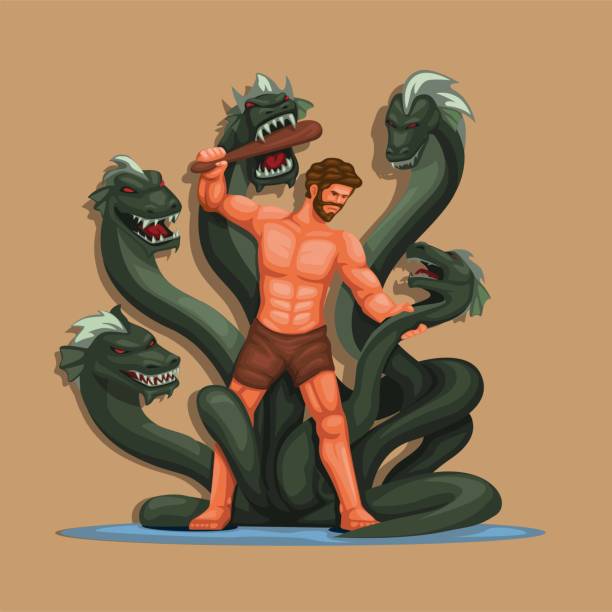The Chimera and the Hydra are two of Greek mythology’s most iconic creatures. The Chimera has the head of a lion, the body of a goat, and the tail of a serpent, and breathes fire. Meanwhile, the Hydra is a serpentine creature with regenerative abilities, possessing at least nine heads that multiply when cut off. In a hypothetical battle between the two, it is hard to determine who would win. While the Chimera’s fire-breathing ability could be lethal, the Hydra’s regenerative abilities would keep it alive. The possible outcome would either be a draw or a win for the Hydra.
Chimera vs. Hydra: The Ultimate Battle of Greek Mythological Beasts
Greek mythology is home to some of the most iconic creatures throughout history, from the powerful Cyclops to the terrifying Minotaur. Two of the most famous beasts, however, have to be the Chimera and the Hydra. These two monsters have been pitted against each other in many mythological tales, but which creature would come out on top in a battle between the two?
Chimera
The Chimera is a legendary creature with the head of a lion, the body of a goat, and the tail of a serpent. The creature is said to have a breath of fire used to burn and lay waste fields and villages. The Chimera was said to have been born from the union of two monsters – the fearsome Echidna and the deadly Typhon.
Strengths of the Chimera
One of the Chimera’s greatest strengths is its ability to breathe fire. This can be a powerful weapon in battle, as the fire can be used to inflict significant damage on any foe. The Chimera’s lion-like head also gives it an advantage in close combat, as it possesses powerful jaws and sharp teeth.
Weaknesses of the Chimera
Despite its fearsome appearance, the Chimera does have a weakness: its goat-like body. This part of the creature is not particularly strong or agile, making it vulnerable to attacks.
Hydra
The Hydra is a legendary serpentine creature with multiple heads – at least nine in most tales, although some versions have more than one hundred. Each time one of the Hydra’s heads is cut off, two more will grow in its place. The Hydra has been said to have been born from the slime left behind by the Titan Cronus.
Strengths of the Hydra
One of the Hydra’s greatest strengths is its regenerative abilities. The creature’s heads will grow back faster than any weapon can destroy them, making it a formidable opponent. The Hydra’s serpentine body also makes it fast and agile, allowing it to evade attacks.
Weaknesses of the Hydra
The Hydra’s regeneration abilities do come with a weakness. In many myths, the creature’s body is vulnerable to attack, and killing the entire creature requires destroying not only its heads but its body as well.
The Battle
In a battle between the Chimera and the Hydra, it would be difficult to say who would emerge victorious. The Chimera’s fire-breathing ability would undoubtedly inflict significant damage on the Hydra, but it is unclear whether it would be enough to overwhelm the creature’s regenerative abilities.
Meanwhile, the Hydra’s multiple heads and serpent-like body would make it difficult for the Chimera to land a decisive blow. The Chimera’s goat-like body would also leave it vulnerable to the Hydra’s attacks.
Possible Outcome
One possible outcome in a battle between these two mythological beasts is a stalemate. The Chimera and the Hydra may be evenly matched, with neither creature able to gain the upper hand.
Another possible outcome is a win for the Hydra. Its regenerative abilities would allow it to wear down the Chimera over time, ultimately defeating the creature.
Conclusion
While we may never know for sure which of these two mythological beasts would come out on top in a battle, one thing is certain: the Chimera and the Hydra are two of the most iconic and formidable creatures from Greek mythology. Their legendary status has ensured that they will remain in our imaginations for many years to come.
